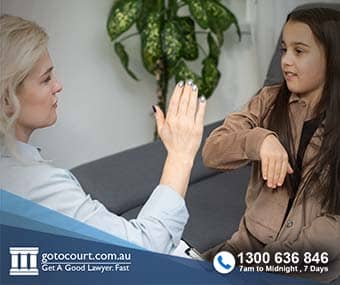Charter of Human Rights and Responsibilities (Vic)
In 2006, Victoria passed the Charter of Human Rights and Responsibilities. The Charter is an ordinary act of parliament that sets out the rights, freedoms and responsibilities of all people living in Victoria. The Charter of Human Rights and Responsibilities requires all public authorities in Victoria to act in a manner consistent with the twenty fundamental rights set out in the charter. While in some cases, these rights may be limited, there must be clear reasons for any decision that curtails a right set out in the charter.
What rights does the Charter protect?
The charter contains the following twenty fundamental rights.
- Right to recognition and equality before the law
- Right to life
- Protection from torture and cruel, inhuman or degrading treatment
- Freedom from forced work
- Freedom of movement
- Right to privacy and reputation
- Freedom of thought, conscience, religion and belief
- Freedom of expression
- Peaceful assembly and freedom of association
- Protection of families and children
- Right to take part in public life
- Right to enjoy and maintain one’s culture
- Right not to be deprived of property other than according to law
- Right to liberty and security of person
- Humane treatment when deprived of liberty
- Rights of children in the criminal process
- Right to a fair hearing
- Rights in criminal proceedings
- Right not to be tried or punished more than once
- Right not to be found guilty based on retrospective criminal laws
How does the Charter work?
The Charter of Human Rights and Responsibilities requires all public authorities to act consistently with the rights protected by the Charter and to consider these rights when developing policies, making laws and making decisions. It requires all new laws to be checked against the Charter and for a statement as to the proposed new law’s compatibility with human rights to be prepared and presented to parliament. If the law curtails rights set out in the Charter, the statement must explain how and why. Parliament can pass a law that is incompatible with the Charter by issuing an override declaration.
When a case comes before the Supreme Court where legislation is inconsistent with the Charter of Human Rights and Responsiblities, the Supreme Court can issue a ‘declaration of inconsistent interpretation’. When this occurs, the minister who proposed the law must review it again. The Supreme Court cannot strike out legislation as parliament has the final say over Victorian laws.
Recent decisions
In 2018, the Victorian Supreme Court confirmed that courts must consider the Aboriginal cultural rights protected under the Charter of Human Rights and Responsibilities when an Aboriginal person seeks to have their criminal matter heard by the Koori Court.
In 2018, the Victorian Supreme Court excluded admissions made by an Italian speaker with limited English in a police interview conducted without an interpreter. The court considered Section 8(3) of the Charter, which protects individuals from discrimination and found that the failure to provide an interpreter was discriminatory.
What can I do if my human rights are breached?
The Charter does not allow a person to start legal proceedings based on a breach of their human rights. However, if you are initiating a legal claim, you may include human rights arguments along with other remedies.
If you make a complaint to the Victorian Equal Opportunity and Human Rights Commission, the Disability Services Commissioner or the Health Services Commissioner, they must consider human rights issues when they are resolving your complaint.
If you think that the actions of a public authority in Victoria have breached, or failed to consider, human rights, you can make a complaint to the Ombudsman.
Responses to the Charter
Since the Charter’s enactment in 2006, it has been criticised both for offering insufficient human rights protections and for being too onerous. Attempts have been made to reform the Charter, by stripping it of its requirement for public authorities to be held accountable. Conversely, others have argued that the Charter should be strengthened by giving individuals legal remedies when their rights are infringed.
The Charter has been criticised for failing to offer protection of the rights of unborn children and for protecting the rights of criminal offenders more comprehensively than those of victims. It has also been criticised as ineffective and for costing the public a lot of money, while making little difference to people’s lives. The absence of any legal remedy for individuals whose rights have been breached has also been highlighted as a weakness.
Supporters of the Charter of Human Rights and Responsibilities say it has helped to shape policies and to force the government to consider human rights in all its decisions. Proponents also argue that if Australia is going to advocate for human rights on the international stage, it must have domestic human rights protections.
If you require legal advice or representation in any legal matter please contact Go To Court Lawyers.







